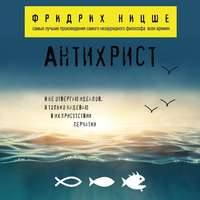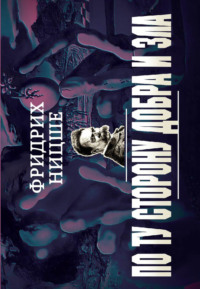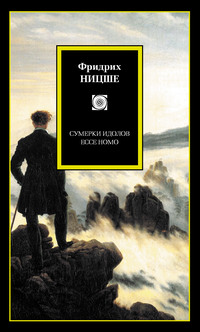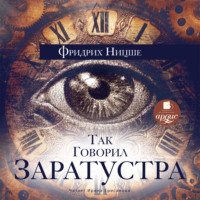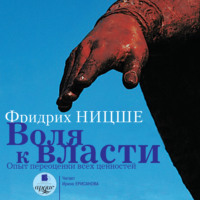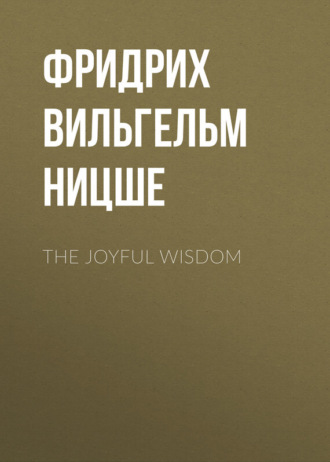 полная версия
полная версияThe Joyful Wisdom
2
An allusion to Schiller's poem: "The Veiled Image of Sais." – TR.
3
Translated by Miss M. D. Petre.
4
A and O, suggestive of Ah! and Oh! refer of course to Alpha and Omega, the first and last letters of the Greek alphabet. – TR.
5
Translated by Miss M. D. Petre.
6
Translated by Miss M. D. Petre.
7
Allusions to the song of Clara in Goethe's "Egmont." – TR.
8
Schiller's poem, "The Veiled Image of Sais," is again referred to here. – TR.
9
This means that true love does not look for reciprocity.
10
The distinction between ethos and pathos in Aristotle is, broadly, that between internal character and external circumstance. – P. V. C.
11
In German the expression Kopf zu waschen, besides the literal sense, also means "to give a person a sound drubbing." – TR.
12
"Germany, Germany, above all": the first line of the German national song. – TR.
13
An allusion to the German Proverb, "Handwerk hat einen goldenen Boden." – TR.
14
Title of the well-known poem of Uhland. – TR.
15
This poem is a parody of the "Chorus Mysticus" which concludes the second part of Goethe's "Faust." Bayard Taylor's translation of the passage in "Faust" runs as follows: —
"All things transitoryBut as symbols are sent,Earth's insufficiencyHere grows to Event:The IndescribableHere it is done:The Woman-Soul leadeth usUpward and on!"16
Translated by Miss M. D. Petre. Inserted by permission of the editor of the Nation, in which it appeared on April 17, 1909.
17
Translated by Miss M. D. Petre. Inserted by permission of the editor of the Nation, in which it appeared on May 15, 1909.



